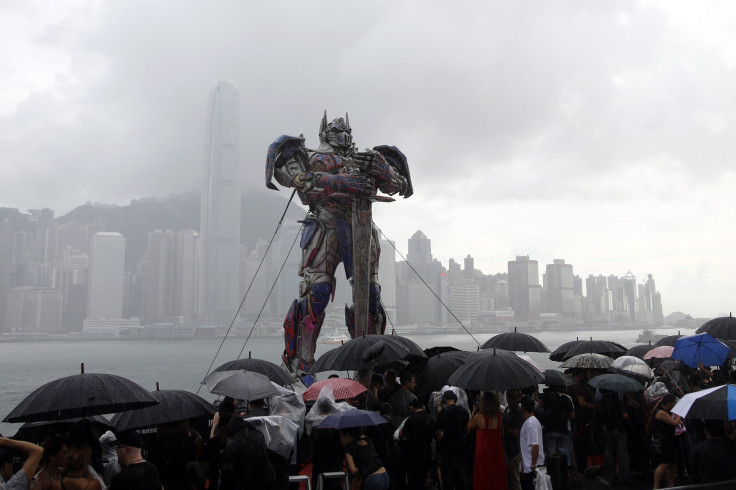‘Transformers: Age of Extinction’ Box Office: Political Pandering Will Help Sequel Succeed ‘Avatar’ As Biggest Movie In Chinese History

“Transformers: Age of Extinction” is on track to become the highest grossing movie in China's history after raking in well over $200 million after its second box office weekend there.
Box office reports put the fourth installment of the “Transformers” franchise at $212.8 million, only a few million shy of “Avatar,” the current Chinese box office record holder. Barring a major global catastrophe, “Age of Extinction” should knock James Cameron’s 3-D spectacle out of first place by the middle of this week.
The success of “Transformers: Age of Extinction” has little to do with the quality of the movie (which has a dismal 18% critic approval rating on Rotten Tomatoes) but plenty to do with Paramount and its Chinese co-producer, China Movie Media group, pandering shamelessly to Chinese audiences -- and the Chinese government. As IBTimes noted last week, “Transformers: Age of Extinction” heavily features Chinese product placement, including a milk brand, an energy drink and Lenovo computers. Well-known Chinese actors were cast in the sequel, which was partially shot at recognizable locations throughout mainland China.
The team behind “Age of Extinction” also appealed to the Chinese government, which has a history of censoring films that challenge its authority. Both Quartz and the Hollywood Reporter (which sent a reporter to a regular theatrical screening in China) observed that the Chinese communist party is depicted as a powerful yet benevolent force in “Transformers: Age of Extinction” -- in contrast to rival governments like our own.
The Hollywood Reporter asked: “Is the message here that democracy is weak and ineffectual, whereas rule by the Communist Party, with its intolerance of dissent and its rule by diktat, is a better way of dealing with angry alien cyborgs, corrupt secret service officials or crazed corporate overreachers?"
The payoff for pandering recalls the controversial comments made by American director Oliver Stone this spring at the Bejing Film Festival, where he criticized Chinese filmmakers for being too soft on the government.
“You’ve got to make a movie about Mao," Stone said. "You’ve got to make a movie about the Cultural Revolution. When you do that, you open up, you stir the waters and allow true creativity to emerge in this country. And then, that will form the basis of real co-productions. Open up your past, the way the United States has opened up its past.”
Stone’s comments, unsurprisingly, drew criticism from Chinese filmmakers better versed in China's political climate and censorship struggles, which include the threat of being banned from making art in China and being jailed for political dissent.
"China’s problem is not that simple,” Chinese director Ning Hao reportedly said in response to Stone’s call to arms, adding, “Good and bad films can’t all be decided by foreigners.”
At a time when the Chinese box office -- the second biggest in the world -- is steadily gaining (and as Hollywood continues to struggle), the success of “Age of Extinction” may be seen as a blueprint for American studios eager to offset disappointing U.S. ticket sales with foreign receipts. James Cameron told the Hollywood Reporter in 2012 that he’d consider a Chinese co-production for the “Avatar” sequels. Now that he is about to lose the No. 1 spot in China to a movie that is in some ways an advertisement for the country, might he be tempted to go the in same direction?
© Copyright IBTimes 2024. All rights reserved.






















